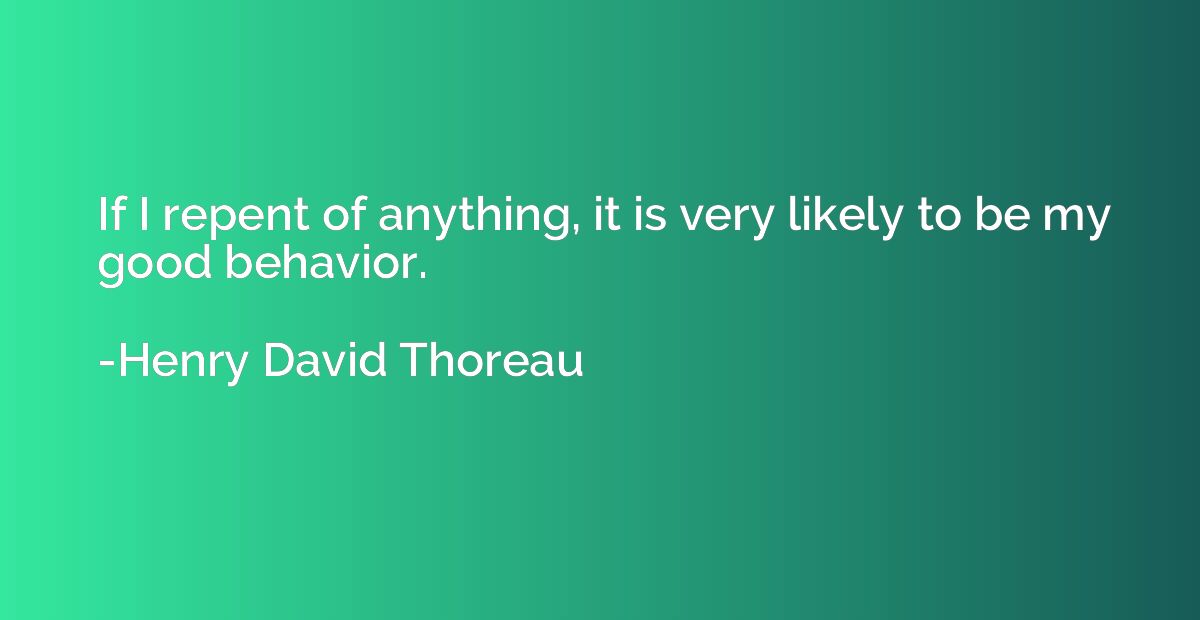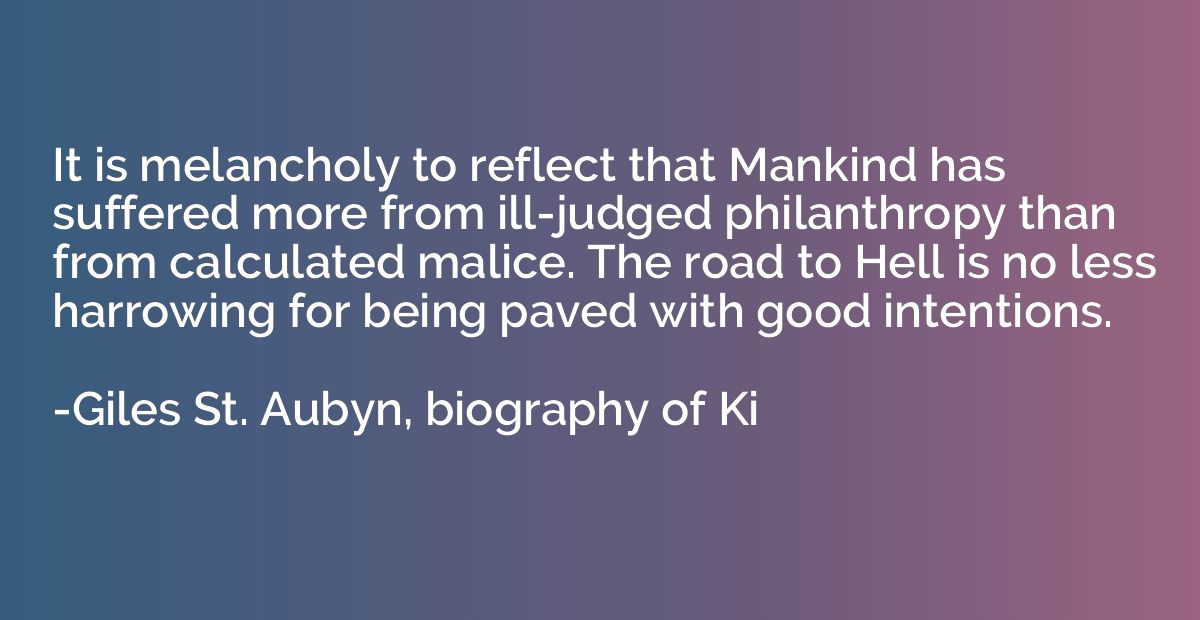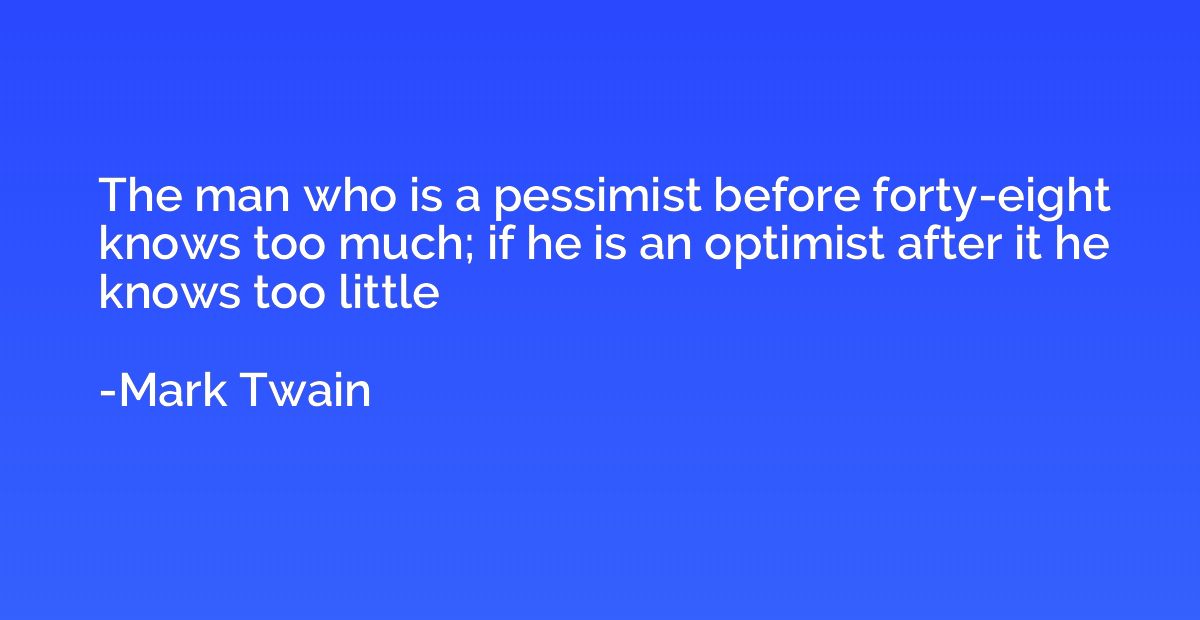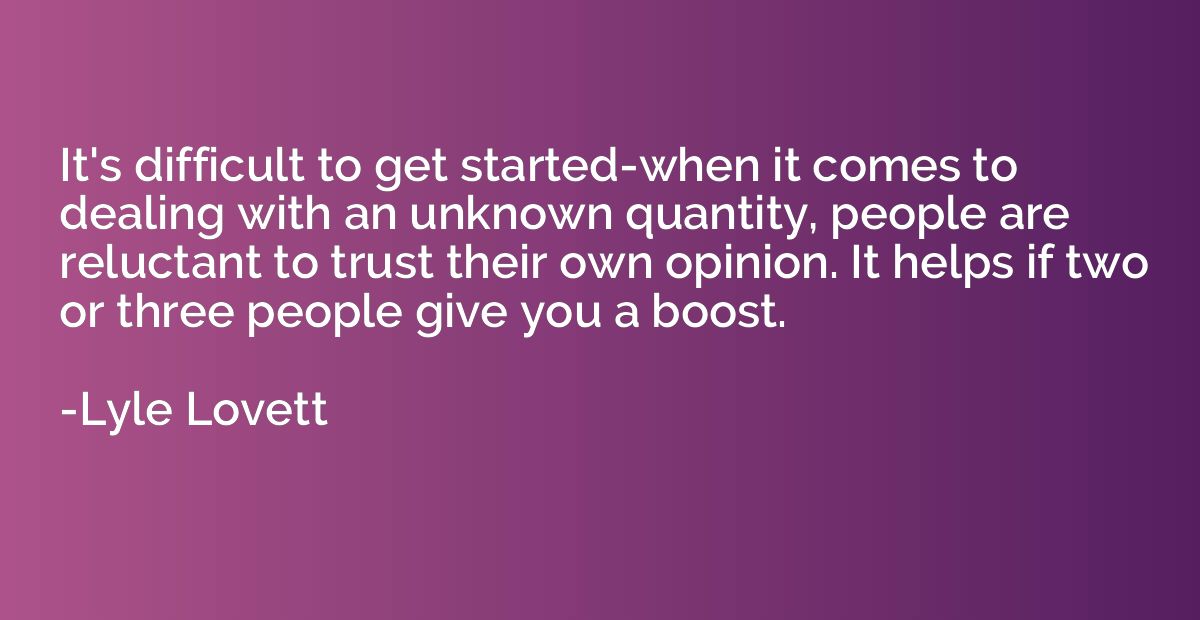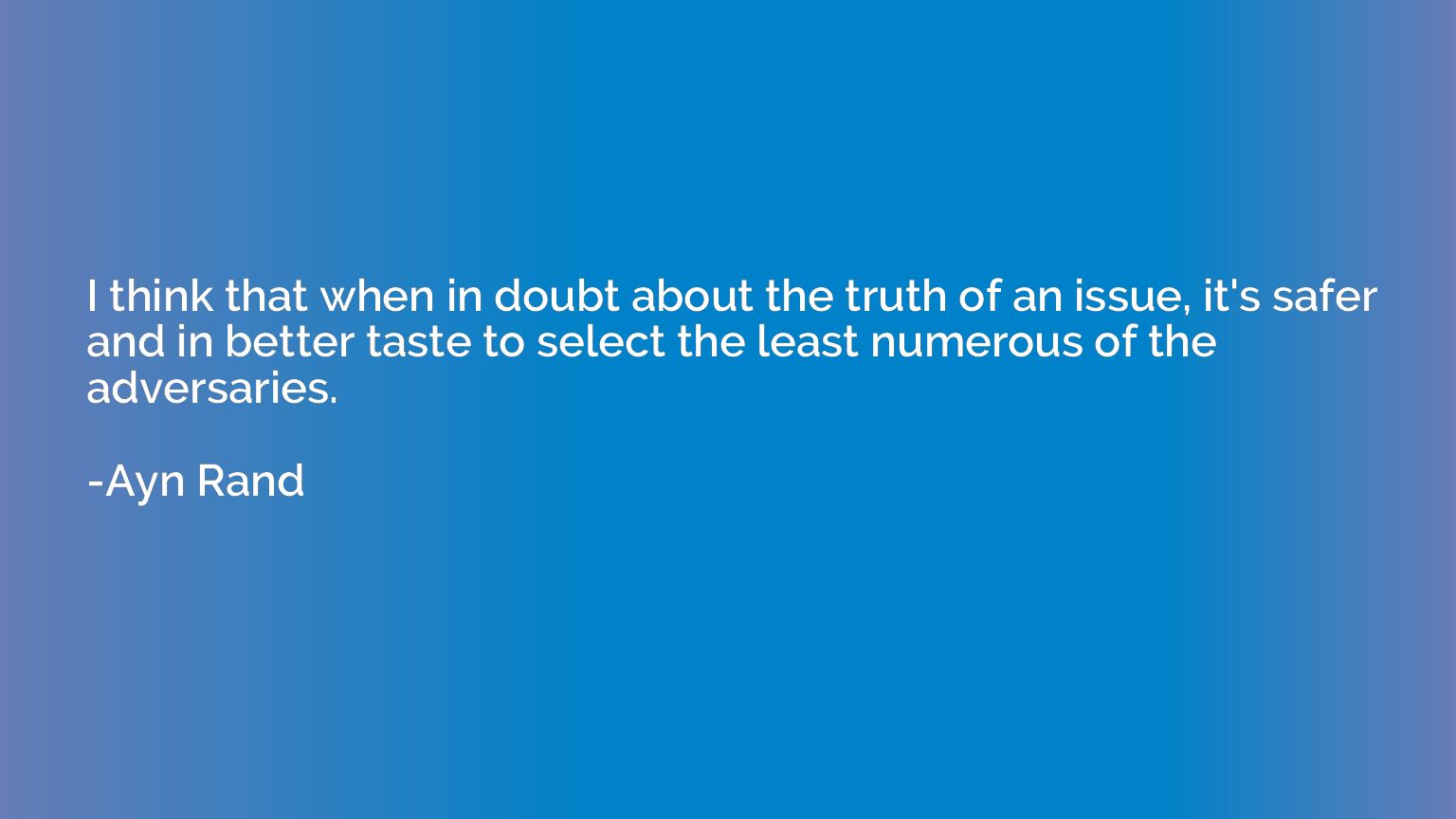Summary
In this quote, the speaker humorously suggests that when it comes to regret, they are more likely to feel remorse for always being well-behaved or conforming to societal expectations. It implies an element of rebellion or a desire to challenge norms, suggesting that the speaker may value authenticity and individuality over being "good" in the conventional sense. While light-hearted, the quote encapsulates a longing for autonomy and the potential regret of not fully embracing personal desires or instincts.
